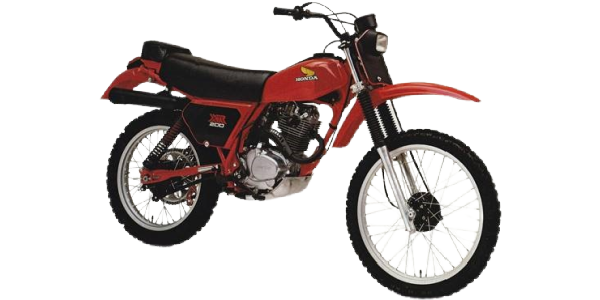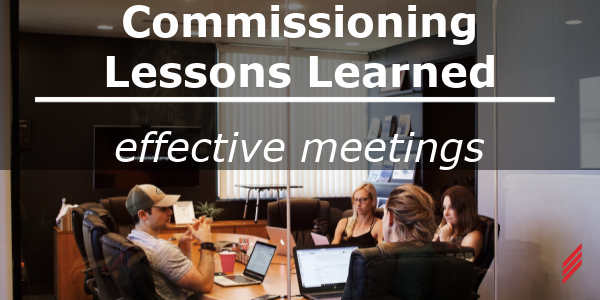Lessons Learned
by Sam Lacasse on Mar 25, 2021 10:30:00 AM

Many times in life we look back and ask what could we have done better? Or, if the situation was something more dramatic we say "I'm not doing that again”. In either case we are always striving for a more positive outcome in everything we do.
Our society has created a culture around Lessons Learned. Organizations have been developed such as OSHA, FDA, MSHA, NFPA and many others focused on our safety and well-being. We have benefited from these organizations by having laws passed, guidelines to follow and educational training. Most of which are the result of some unfortunate events where there was a near miss, an injury or loss of life.
What Did I Do That For?
Lessons Learned to me are behavioral modifications that lead to more retrospective planning. Can you think back to a personal experience that has fundamentally changed the way you do certain things? I will share my personal life lesson with you.
Young Reckless Red Rider
I was 16 years of age having less concern about thinking things through and considering all the possible outcomes. A friend of mine and I had purchased a Honda XR200 dirt bike for short money. It needed a new clutch cable before it was safe to ride. Two 16 year old boys with a new toy collectively think "let's take it for a quick spin". Now it was well known that a clutch can be ‘optional’ under the correct speed and torque conditions, slam shifting as we called it. So near a main road that had some moderate traffic the plan was to pop it into gear at a low rpm and ride up the road to the back woods for some tooling around. What actually happened was the red beast reared back which caught me by surprise. As I tried to catch myself from the jolt I grabbed the throttle like someone with an electric power drill that has caught into a big piece of metal. I just couldn't let go because I was hanging on to prevent falling off. The bike was now out of my control.
At that moment, a vehicle was directly in front of the driveway where we started the red nightmare. I hit the car in the driver side door, flipped over the handlebars as the car passed underneath me and then landed on my feet in the middle of the street. It must have looked like a scene from the movie "The Matrix"! The bike had stopped dead on the street's center yellow line with the engine stalled, front wheel bent and forks twisted. The vehicle had pulled off to the side of the road with a large dent in the door. I fortunately had not as much as a scratch. We immediately dragged the wreck off the road and dealt with all the consequences of my recklessness. I had multiple things to be thankful for that day. A few seconds earlier and I shudder to think of what could have happened. I will leave it to the reader's imagination to ramble through the ‘what ifs’. This event had had a profound effect on all of my life's decisions from that day forward. In my everyday decisions I try to think about safety first, patience, planning and taking responsibility for my actions.
Application
In our professional lives our continued success depends on this same principal of learning based on our experiences, good or bad. All experiences are invaluable. Most of my professional experiences have been much less reckless than the Red Rider incident but typically has the same level of intensity. As a control system engineer with over 25 years of experience I have been involved in many interesting projects. Engineering projects all have different challenges. These challenges can be overcome if you take a consistent realistic approach. All of the projects I have been involved with have been complete success stories. I attribute this success to project teams being able to effectively applying the Lessons Learned based on past experience. This is not to say that all projects were perfect it simply means we were able to effectively overcome obstacles. On each of the project teams we had kickoff, progress and closeout meetings to identify things that worked well and things that needed work and what were some of the conditions that contributed to each. These meetings are important to be held for every project not just for projects that had a less than positive result. They should be structured, fun, quick and painless to get the maximum benefit. Most of the projects solicited feedback from the owners, end users and contractors to get as many external viewpoints as possible. This keeps things objective and helps drive results when the criticism comes from an external source.
Reevaluate
In today’s evolving business environments change is constant. Things I am doing today are not being done the way I had been doing it 5 years ago.
The most recent changes to our typical control system projects that cause me to reevaluate the process are delivery schedules are continually being compressed and equipment deliveries are planned for "Just in Time" delivery as many manufacturers, distributors and contractors have some form of Lean manufacturing. This requires all members within an organization to be able react to changes quickly and think outside the box for solutions. Even thinking outside the box requires continual review of new technologies to aid the achievement of our goals of striving to be the best.
This requires all members within an organization to be able react to changes quickly and think outside the box for solutions. Even thinking outside the box requires continual review of new technologies to aid the achievement of our goals of striving to be the best.
As a result of this time crunch and to help reduce our time to market of our automation projects, we have deployed our own Virtualized simulation system. This allows us to start configuration process as early as the day of the receipt of the PO. The beauty is that it is completely reusable and reconfigurable. We have even gone as far as to buy/rent/borrow PLC systems to make our development system as close to the real thing.
Teamwork
The concept of teamwork has been a particular challenge for me. To let others do the work I would normally do myself. .jpg?width=256&name=teamwork%20(1).jpg) Another lesson learned is that the more I involved others led to the work being completed quicker, and now others could help support the system and efficiency was increased.
Another lesson learned is that the more I involved others led to the work being completed quicker, and now others could help support the system and efficiency was increased.
In this new found spirt of teamwork I asked a few of my colleagues what their views were on Lessons Learned and a few interesting points were raised;
Projects may have preexisting designs or conditions that may be out of our immediate control. This requires the team to evolve the design during implementation or execution phase.
Site conditions require consistent deployment with current site software & hardware standards. This may inhibit taking advantage of new features and functionality.
An automation system requiring integrated external equipment out of your direct control is especially challenging. Results vary significantly based on when the system was purchased, access to the vendor system and the availability of accurate information.
Summary
- Be consistent with your approach, create and foster a team environment and always reevaluate what you are doing.
- Live Safe, Learn Always and Promote Others
About the author
Sam Lacasse is a Senior Process Controls Engineer for Hallam-ICS with 22 years of experience. Graduating from New England Institute of Technology 1993 with an A.S. Science Degree. He has extensive experience in Toxic Gas Monitoring, Food & Beverage, Robotics/Vision/Motion control and large scale Water/Wastewater applications.
Read My Hallam Story
About Hallam-ICS
Hallam-ICS is an engineering and automation company that designs MEP systems for facilities and plants, engineers control and automation solutions, and ensures safety and regulatory compliance through arc flash studies, commissioning, and validation. Our offices are located in Massachusetts, Connecticut, New York, Vermont and North Carolina and our projects take us world-wide.
You May Also Like
These Related Stories

Commissioning Lessons Learned – Communication!

Commissioning Lessons Learned – Effective Meetings



No Comments Yet
Let us know what you think